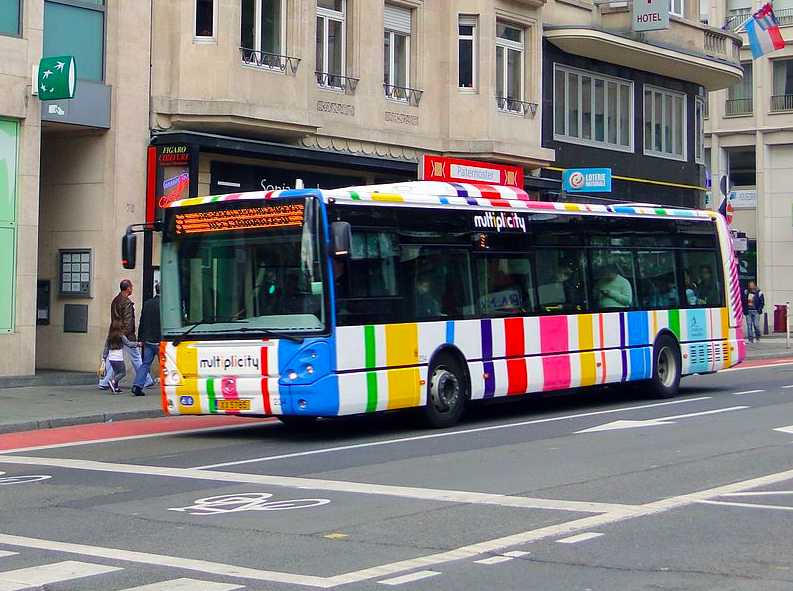Little Luxembourg will be make riding the bus or train anywhere within its borders free beginning this summer.
The newly elected left-leaning coalition government announced its plans, aimed at reducing carbon emissions and easing traffic congestion, this week.
Luxembourg, in a niche surrounded by Belgium, France and Germany, is home to about 600,000 people — and, apparently, severe traffic congestion. The winning political coalition — the left wing Socialist Workers’ Party and Green Party and the centrist Democratic Party — campaigned on the promise of environmental progress, according to the Guardian.
Fares were already already relatively inexpensive. The country made them free recently for those under 20. Adult passes were limited to $2.20 per two-hour period, the Huffington Post reports.
Free transit will not only save Euros for Luxembourger, but also for the government, which no longer has to worry about collecting fares or enforcing payment.
Another European nation — Estonia — began offering free public transit nationwide this summer, but not all its regions have implemented the change yet, according to Weforum. Estonia's decision came after a successful experiment in the city of Tallinn. That experiment, which began in 2013, actually turns a profit of about $23 million. That's because, as the Guardian explains, more people registered as citizens of the city, which is a requirement to receive the free transit benefit. The additional taxes collected more than covered the cost of the fare losses.
Earlier experiments with free public transit in the U.S. and in Europe met with mixed-success, however. Between the 1970s and the 1990s, Austin, Texas; Denver and Trenton, New Jersey experimented with free public transit, The Atlantic reports. But the experiments weren't very successful at luring people out of cars. Wealthier drivers aren't that sensitive to price changes, observers noted.
Nevertheless, there appears to be renewed interest. The chairman of the Board of L.A. Metro transit, Phil Washington, said on Thursday that he supports congestion pricing to help pay for free transit in the region by 2028, according to Curbed.
In addition, there is a movement in the U.S. aimed at reducing transit fares for lower-income people. Many of America's most progressive cities, including New York and Seattle, have already done so.
It's Streetsblog's annual December donation drive






